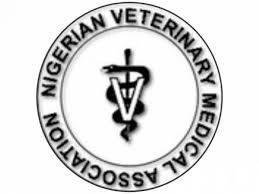Nigerian Veterinary Medical Association calls for Inclusion in Nation Building
By Omolola Fadile
The Nigerian Veterinary Medical Association ( NVMA) has called on the Federal Government to consider employing veterinarians at all levels in order so as to impact positively on the Nation’s Economy.
READ ALSO:Lassa Fever: NMA issues warning to health workers in Kaduna
The President of the Association Dr. Moses Arokoyo made the call at a press briefing in Jos the Plateau State Capital as part of activities to leading to their 2024 Congress. Speaking at the briefing Dr. Moses said this year’s Congress is very significant as the profession started in Jos in 1924.
This year, we have aligned ourselves to make a partnership with what His Excellency, our president Ahmed Bola Tinubu, has charged the country. Not too long ago, he declared a state of emergency with regards to food security. As veterinarians in Nigeria, we have repositioned ourselves, and we continue to do that because we believe strongly that we have a role to play . For this year’s Congress being held in Jos, we are looking at 100 years of veterinary service delivery. In line with that, we are looking at opportunities in harnessing artificial intelligence and enhancing national security. One of the things we’ll be doing in the coming days is have professionals and experts, veterinarians like ourselves, coming from different fields to share with us how to improve through artificial intelligence. He said. We are also going to be opportune to have the Deputy Secretary-General of the United Nations address us with a special message during the course of the opening ceremony. He said.
Arokoyo added that the Association is willing to reposition it self to support the government in service delivery, particularly in terms of food security, as veterinarians in the country.
“In line with this, we also want to challenge ourselves as veterinarians because we have come a long way. We’ve contributed a lot to the development of agriculture in Nigeria, and we feel we can do more. Take, for instance, in the country as of today, if you look at Q1 (April), the agric industry contributes not less than 8% to the national GDP. Some may say 25%, but that remains debatable. As of Q1 this year, we are looking at -23.39% from livestock and about -1.14%, if memory serves me right, from aquaculture. So, we can officially say, based on statistics, that the livestock industry is in recession. This is why we are particularly excited that the President has graciously pronounced a Ministry of Livestock Development. We have a role to play in production and in health, and we know that as veterinarians, we are properly positioned to change this status quo. He added.
Dr. Arokoyo added that based on thier expertise, they can add to the GDP of this nation, we can improve it.
” I want to use this opportunity ahead of the 2025 budget to appeal to the government, to His Excellency, to give us veterinarians the opportunity to impact positively on the economy of this nation. Beyond that, as veterinarians, we are gatekeepers of public health. You may not know, but 2.6 billion of the sicknesses and diseases people experience today come from zoonotic diseases, and about 2.7 million deaths result from zoonosis. Zoonosis is any disease that can move from animals to humans. If we are talking about 2.7 million deaths (verified by WHO), when you mention diseases like Lassa fever, anthrax, Ebola, and avian influenza, moving from chickens to cattle, it becomes even more risky. If 75% of emerging diseases come from animals, any nation that fails to take its veterinarians seriously is unprepared for another pandemic. He said.
On the issue of Food scarcity, Dr. Moses noted that Nation cannot continue to lose and still talk about food security.
” We must preserve what we have. This is part of the clarion call we are making to ourselves as veterinarians and we’ll engage in deep scientific and professional interaction. It is time for us to take our place. There are not enough veterinarians in this country. There are 774 local governments, and very few of them have a vet. When a disease outbreak happens, it starts in areas we overlook—typically not in the city, but in a village or local government without a vet. If it’s not caught early, it spreads therefore it is time to let veterinarians take their place in food production and health. We are prepared for this task. We trained for this task, and we can help the government provide 50% or more of the budget for next year if given the opportunity. He added.
Dr. Arokoyo further urge the federal government to consider employing veterinarians at all levels and in all local governments which according to him is not for self-aggrandizement but for the reality that we face.


Comments are closed.